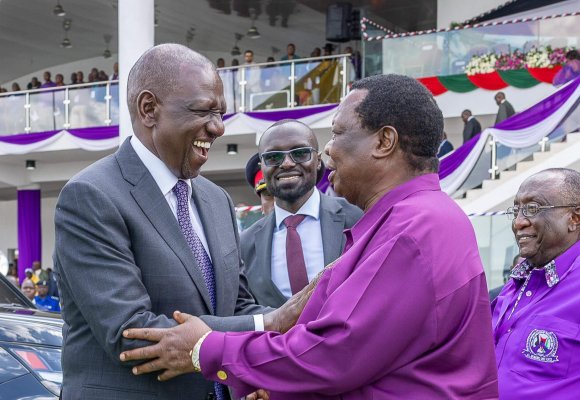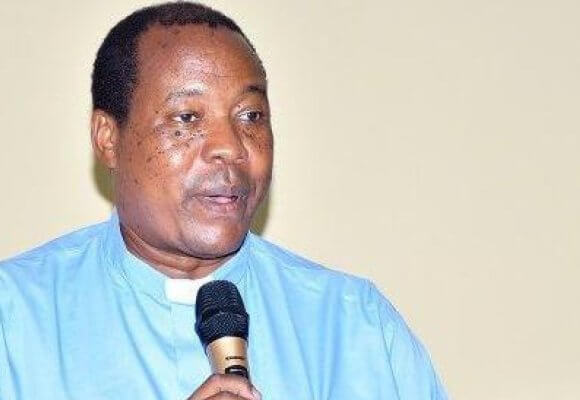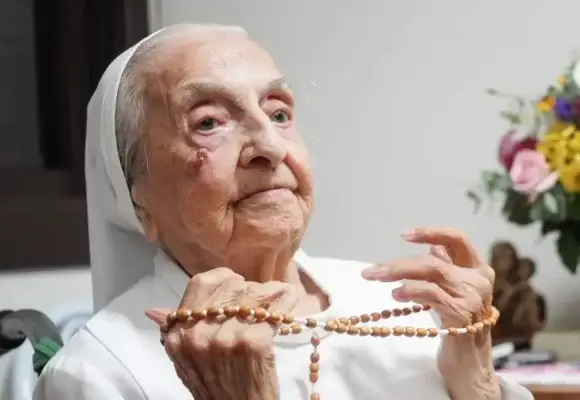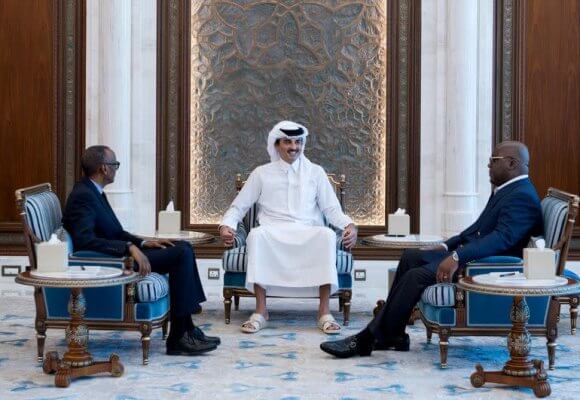|
LISTEN TO THIS THE AFRICANA VOICE ARTICLE NOW
Getting your Trinity Audio player ready...
|
Mnangagwa wins in disputed Zimbabwean Vote, UN Concerned
Emmerson Mnangagwa was declared the winner of the Zimbabwe presidential election on Sunday, August 27, securing a second term in office.
Mnangagwa, who took over from longtime leader Robert Mugabe after a 2017 army coup, won 52.6% of the vote, compared to 44% for his main challenger, Nelson Chamisa.
The election was marred by delays and accusations of rigging, but the Zimbabwe Electoral Commission (ZEC) said the results were final.
The opposition has rejected the results and said it will challenge them in court. The United Nations released a statement Sunday after the election results were announced, saying it was concerned.
“The Secretary-General is closely following developments in Zimbabwe’s elections. He is concerned about the arrest of observers, reports of voter intimidation, threats of violence, harassment and coercion, the statement read in part.
“The Secretary-General calls on political leaders and their supporters to reject any and all forms of violence, threats of violence, or incitement to violence, and to ensure that human rights and the rule of law are fully respected,” the statement added.
Further, the UN chief called on the political actors to “peacefully settle any disputes through established legal and institutional channels,” and urged the authorities to resolve any disputes in a fair, expeditious, and transparent manner “to ensure that the results are a true reflection of the will of the people.”
Foreign observers also raised concerns about the election, saying it did not meet international standards.
The European Union’s observer mission said the vote took place in a “climate of fear” and that there were “serious concerns” about the fairness of the process.
The Southern African Development Community (SADC) mission also noted a number of irregularities, including voting delays, problems with the voter roll, and biased state media coverage.
Despite the concerns, Mnangagwa’s victory is a major boost for the ruling ZANU-PF party, which has been in power since independence in 1980.
The 80-year-old president will now serve a second and final term in office.
Amhara Fighting: At Least 10 Civilians Dead in Latest Clashes
Fighting in Ethiopia’s Amhara region flares up again, with at least 10 civilians killed
Fighting between local militias and government troops flared up again in some areas of Ethiopia’s Amhara region last weekend, after a week of relative calm. At least 10 civilians were killed and dozens more injured in the violence.
The fighting was concentrated in the city of Debre Tabor, where the main hospital was hit by heavy artillery fire. The hospital sustained significant damage, and at least five people who were visiting patients were killed. More than 20 other civilians were also wounded, including some who were simply walking near the hospital.
Fighting has also been reported in or around the towns of Debre Markos and Fenote Selam, as well as in other small towns and villages in the region.
The latest round of fighting is the latest in a series of clashes that have erupted in Amhara since April, when the government dissolved a regional paramilitary force. The dissolution of the force angered many Amharans, who saw it as a betrayal of their interests.
The fighting has displaced thousands of people and caused widespread damage to property. The United Nations estimates that more than 100,000 people have been displaced by the violence in Amhara since early August.
The government has blamed the fighting on the Fano, a local militia group that is opposed to the federal government. The Fano has denied responsibility for the violence, but it has vowed to continue fighting until the government meets its demands.
The fighting in Amhara is a major setback for Ethiopia’s efforts to achieve peace and stability. The government has been struggling to contain the violence, and it is unclear how the situation will be resolved.
The United Nations and other international organizations have called for an immediate end to the fighting and for all parties to engage in dialogue.
France’s Ambassador to Niger Defies Junta’s Order to Leave
France’s President Emmanuel Macron has said that the country’s ambassador to Niger will remain in the country despite pressure from the junta to leave.
Macron also reiterated France’s support for Niger’s overthrown President Mohamed Bazoum, who has refused to resign. He said that France would support any military action by the Economic Community of West African States (ECOWAS) to restore constitutional order in Niger.
The French ambassador, Sylvain Itte, was given a 48-hour deadline to leave Niger on Friday, but he has refused to do so. Macron said that he applauds Itte’s commitment to staying in Niger and supporting Bazoum.
Bazoum was toppled in a coup on July 26. The coup has been condemned by France and most of Niger’s neighbors. ECOWAS has been trying to negotiate with the leaders of the coup, but it has said that it is ready to deploy troops if diplomatic efforts fail.
Macron said that France would not change its position in condemning the coup and offering support to Bazoum. He stressed that Bazoum had been democratically elected and that the coup was illegitimate.
“I think our policy is the right one,” said Macron. “It’s based on the courage of President Bazoum, and on the commitments of our ambassador on the ground who is remaining despite all the pressure, despite all the declarations made by the illegitimate authorities.”
















































LEAVE A COMMENT
You must be logged in to post a comment.